MoxiWorks Already Delivers Upstream for Brokers

The pivot heard around the real estate world
When news broke of Upstream’s strategy pivot, we all stopped to see how they shifted because this not only has implications for brokerages, but for the industry as a whole. For many, Upstream’s movement represented brokers taking back control. This pivot means the power stays in the hands of the MLS.
What Happened With Upstream?
The original plan was for Upstream to stick themselves before the MLS organizations, granting brokerages much wanted control where they hadn’t before. Now instead of trying to get brokers to input listings with Upstream first, they will have brokers input listings into their MLS, and later can push said listing through a dashboard to Upstream if/when the broker chooses to. It’s not just a pivot, they flipped a 180 and it has major implications.
York Baur, CEO of Moxi Works, weighed in on the topic and said, “The point of Upstream was for brokerages to get control of their data. We were fans of the idea of upstream. If we had a magic wand and Upstream existed, then our team wouldn’t be spending their time chasing MLSs around, we would just be writing to the Upstream API and be done with it. The problem they were solving for the software companies and brokerages was a fantastic idea. We understand why they had to pivot – trying to change agent behavior at the MLS level is a huge challenge.”
There has to be a better way, right? We’re here to say: There is.
A Solution
 Moxi offers an alternative that gives more control to brokers. But before we explain how, we need to back up and look at the original goal of Upstream.
Moxi offers an alternative that gives more control to brokers. But before we explain how, we need to back up and look at the original goal of Upstream.
To give you some perspective, “The idea behind Upstream is to give brokerages the ability to store and distribute any information they deal with, not just listings. This includes information related to salespeople, employees, customers or clients, vendors, accounting and historical property data.” This is from a 2015 Inman article. They didn’t just set out to fix the control of property data, they set out to fix the brokerage control of all data.
So, what’s the alternative? The next best thing are open platforms like the Moxi Cloud. The end result for brokerages in our case, is the same. The brokerages data is all in one place and all the tool and services integrations can get to it. It’s a power strip where brokerages can plug and unplug all the best-in-class tools and services they want, while remaining in control of all their data.
Baur added, “There is good news to all of this, and that is that the Moxi Cloud open platform does what Upstream promised today, allowing property data, brokerage data, agent data, and consumer data, to be used and updated by more than 30 industry leading tools and services. Until the time Upstream or something like it exists, this is the best brokerage solution.”
The most common question we get is: “What if we commit to the Moxi Cloud and then Upstream happens… then what?” The answer is simple. We have already cultivated these tools and services, we would simply take the Upstream feed into our services and everything would work the same. It’s not the Moxi Cloud or Upstream, it’s the Moxi Cloud AND Upstream.
Final Thoughts
Our goal, why we do what we do, is all in order to strengthen a brokerage and give them control of their destiny. “The desire for brokers to have more control won’t go away and it will probably be filled by MLSs, brokers, and platforms like Moxi Works, that already build tools that give brokers that control,” said Cass Herrin, Director of Data Services at Moxi Works. “We will continue to focus on tools that give brokers control over their own listings.”
Baur added, “Brokers funded Upstream with the goal of gaining control of their data. While that’s been diluted by this pivot, brokers must realize that the vendor community and the open platform Moxi Works provides, aka the Moxi Cloud, has already solved this problem.”
Learn about the open platform and how it can benefit your brokerage here.
A glance at the Moxi Works Open Platform:

A Heightened Level of Connectivity in a Tech-Driven World
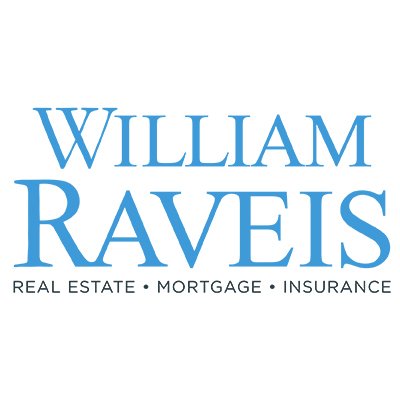
CLICK HERE TO READ THE FULL ARTICLE Committed to keeping their agents on the leading edge of the ever-evolving technology movement, William Raveis Real Estate has invested heavily in their technology platform over the course of the past year. From partnering with Microsoft to introducing a customizable version of Office 365 to each and every agent across the firm’s 120 offices, the cherry on top of it all is the brokerage’s recent partnership with residential brokerage services company Moxi Works.
Why a Brokerage Platform Isn’t a Want, It’s a Necessity
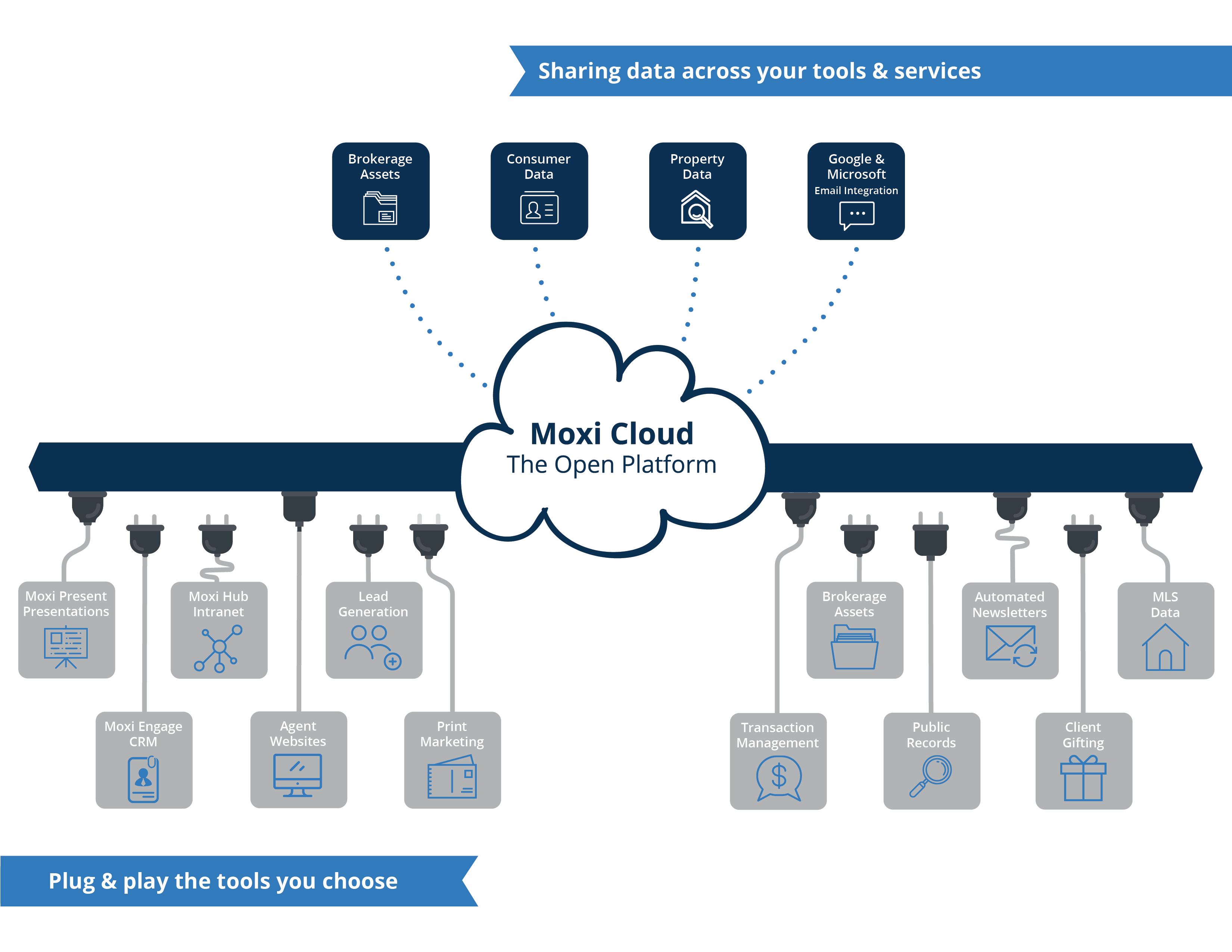
The real estate industry is evolving – don’t get left in the dust
By York Baur, CEO of Moxi Works
Platforms are new to our industry and unfortunately, they’re wildly misunderstood. It doesn’t help brokerages realize the intricacies of them when the term “platform” is being thrown around so heavily. Right now it’s the buzz word dujoure and many of these “platforms” don’t offer or do what they should. There are five core components that a platform should have and offer, which I’ll explain below.
The reality is, you don’t need a transaction platform or a marketing platform, you need a brokerage platform where all of your tools and services such as transaction management and marketing plug in and exchange data.
The importance of picking a platform that is driven by the right company for your brokerage cannot be ignored because you’re going to have to live with this thing for a long time. If you don’t pick the right one, it’s likely that you’re going to have problems in the future and changing platforms is no walk in the park. It’s like switching from Android to iPhone or vice versa – not a trivial change.
The five core components that the platform needs to have and offer are:
1. Property data
2. Brokerage and agent data
3. Consumer data
4. Integration with the cloud environment with Microsoft and Google
5. An API allowing other companies to integrate
A proper platform has a variety of benefits. The first is that it significantly increases the choices of tools and services that a brokerage has and significantly decreases the amount of effort that the brokerage has to put into configuring, supporting, and managing those tools.
The second benefit is the ability of the real estate software industry to innovate at a much quicker pace given that brokerages don’t have to reinvent the wheel since the platform already provides many of the basic services that applications need.
Types of Platforms
Up until now I’ve explained what a platform is, but not that there are different kinds. There are closed platforms and open platforms, and one has many more benefits than the other. The philosophy of an open platform is that it offers the best tools and services throughout its ecosystem and isn’t limited to the tools and services built in house. Here are some definitions:
Open Platform: Has an open API that allows brokerages to plug and play tools and services from multiple vendors, including multiple vendors per category (such as marketing, transaction management, etc.), as they see fit.
Closed Platform: Brokerages are required to take the tools and services from one vendor and a very short list of partners, limiting choice and flexibility.
Think of an open platform as a power strip that lets you plug and play the tools and services you want, and unplug the ones you choose to exchange for new, better ones. Basically, an open platform allows a brokerage to select all of the best tools out there, have them work together, and can change tools at will – hassle free.
Integration
If you remember, the great innovation of Windows was when you were able to switch from an HP to and Epson printer and everything magically worked after installing the new printer driver. You didn’t have to do anything to Word, you just hit the print button. It’s that flexibility and integration that you get when having a platform.
Like Microsoft, we don’t pretend to be amazing at everything. We let our brokerages choose the best tools and services out there for their brokerage and integrate them into our platform; our own flavor of Windows. We want the power to stay in the brokerages hands, allowing them to curate the tools and services they think are best for their own agents. Every brokerage is unique and because of it, each needs a unique solution.
What’s an Ecosystem?
There are many ways to describe an ecosystem, but for this application within our industry, this is how I choose to explain it:
“An ecosystem is a collection of complimentary applications all working together, sharing data, that make the whole greater than the sum of its parts.”
Any computer you’ve ever used in the modern age has its own ecosystem. Whether it’s that Epson printer you’re using or the many applications you go through in a day like Skype, QuickBooks, or Adobe, everything works together as soon as you install it. If you don’t like an application, you delete it and get another one. It’s as simple as that; that’s plug and play.
Here’s what a platform’s ecosystem should look like:

Why a Brokerage Should Care
If you think that you can ignore or take your sweet time figuring out what a platform is and what it means to your business – think again.
Look what Keller Williams is doing with the Keller Cloud, for example. Should you care about it? Absolutely – we’re excited that they’re enabling data exchange between their tools to make agents lives easier. What this means to you is that you’re going to have to provide a compelling answer when one of your agents is considering moving to Keller Williams, or you’re trying to recruit talent from them. It is absolutely pertinent that you have an answer for what your brokerage platform is when retaining and recruiting agents.
While we’re fans of the integration the the Keller Cloud is creating, it’s still not a truly open platform. Why? Because Keller Williams corporate is still deciding which tools and services will be allowed to plug-in. An easy way to spot the difference, is if it doesn’t have the five characteristics I mentioned above, it’s not an open platform.
The bottom line is, having an open platform and ecosystem of applications that run on it is the key to agent productivity and retention. Traditional brokerages with old school technology are losing agents to brokerages that have not only embraced tech, but have also invested in it. Investing in a platform will allow your brokerage to look to the future without anxiety holding you back, as long as you pick the right one.
Find out more about brokerage platforms and how they work by visiting this page.
Ten Ways to Turn Public Data into Listings
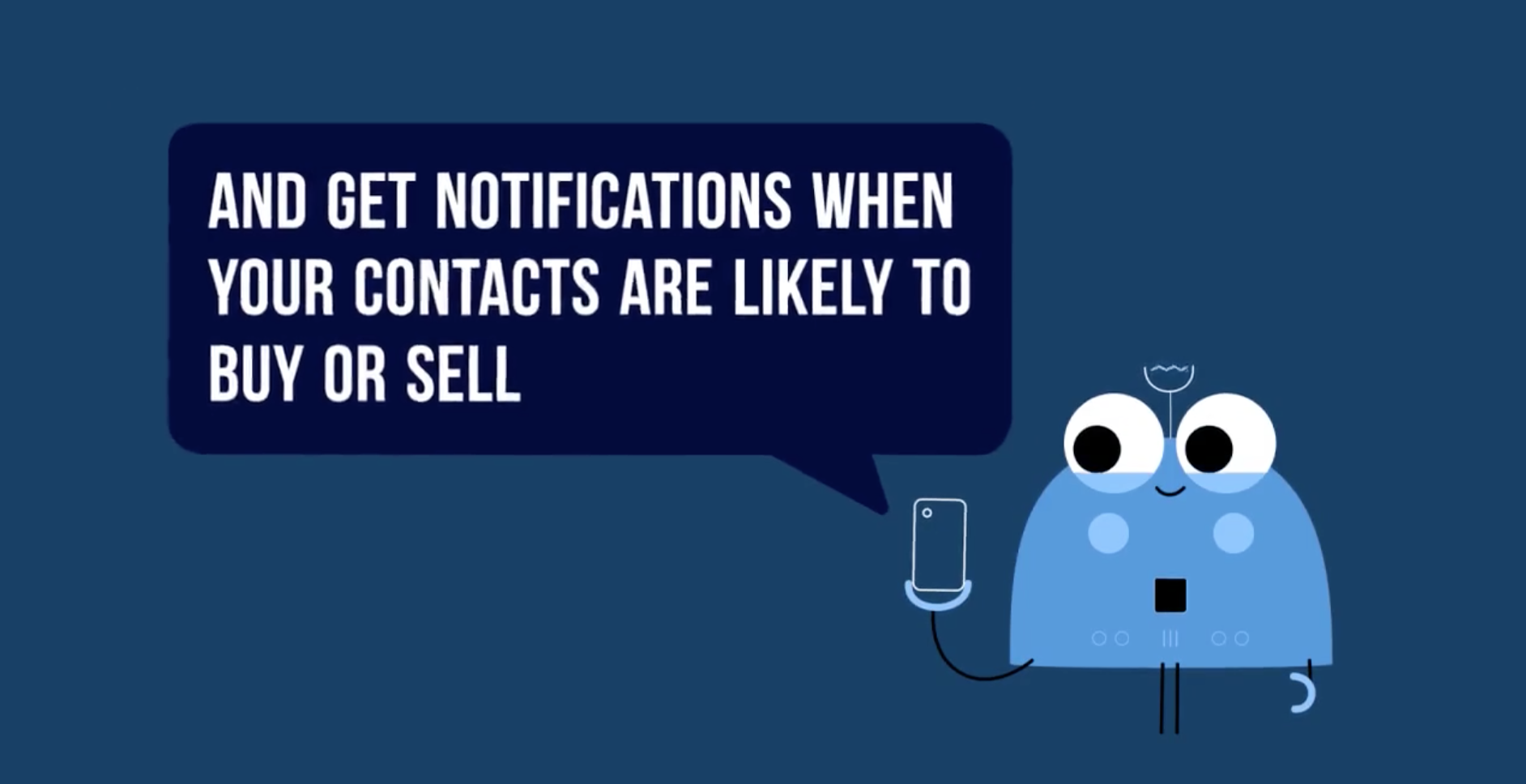
An agent’s sphere is the lifeblood of their business, but staying on top of hundreds of clients and leads can be exhausting and time consuming. Wouldn’t it be great to immediately know details about their sphere and know when they are likely to list their homes? Public data can make all the difference.

Enter Moxi Insights
Moxi Insights is a newly released feature of our Moxi Engage CRM and is no doubt changing the game for sphere marketing with the help of public data. Moxi Insights gives quick and organized client information to agents through their CRM, from general demographics, housing info, lifestyle choices, financials, and hobbies to where clients/prospects donate and invest their money. Agents can potentially see if their clients have pets, certain cars, or if they’re a value shopper.
Notifications and badges let you see when people in your sphere are looking to downsize or could afford a larger home, and if they’re highly likely to buy or sell. All to make it easier for agents to maintain control of their sphere, and of course, save them some precious time.

The public data is there, but how are you going to take full advantage of it?
We’ve put together a list of the top 10 ways to use Moxi Insights to its fullest:
1. Send investment opportunities to investors.
2. Invite all your sports fans to a night out at the ballpark. Buy ’em a ticket, a beer and a hotdog. Save some money by taking them to a minor-league game (which are typically very fun and engaging BTW).
3. Send all the highly-likely-to-sell people your “How to list your home” guide. Moxi Insights lets you know when someone is highly-likely-to-sell.
4. Send about to be empty nesters your “Downsizing tips from the pros” guide. Moxi Insights informs you when people are probably thinking of downsizing.
5. Send invitations to the local gallery walk night to all the art fans. Do a meetup with them. Offer to buy them a glass of vino.
6. Got a boat and a bunch of boating fans? Invite them to a meet up on the lake. Have everyone tie up together and do a barbeque on your boat.
7. Quickly and easily learn more info about the internet leads you receive.
8. Learn the interests of your client or almost-client to buy them the perfect “thank you”, “happy birthday”, or closing gift.
9. Got a bunch of literature fans? Invite ’em to a local bookstore with a cafe and offer to buy ’em coffee and a scone.
10. If anyone has a badge, send an unsolicited CMA, a handwritten note, text or Facebook message them for a coffee date just to chat and catch up. Spend extra time with them – not necessarily talking about anything on the Insights report, but reconnecting with them at the perfect time.
The goal is to keep it real and find the human connection when you are working to engage and convert new leads or keep in touch with your sphere. Moxi Insights helps you do just that with the use of public data.
Here’s another look at Moxi Insights:
Like all Moxi Works products, Moxi Insights is mobile optimized through the Moxi Engage CRM and can be accessed on any handheld device, laptop, or tablet.
Find out more about Moxi Insights, our other products, and what the Moxi Cloud is all about right here.
A New World of Platforms for Brokerages

The difference between closed and open platforms exposed
By Mike McHenry, VP of Channels and Partnerships, Moxi Works
Takeaways:
- A platform is like a power strip; it lets you plug and unplug tools
- An open platform differentiates a broker’s tool set, aiding recruiting and retention
- The difference between a closed and open platform is monumental
A “Platform” is whatever you want it to be
Platforms have existed in technology for ages. Most industries have already adopted them, but it’s a relatively new idea for a residential brokerage. I’ve noticed that the word “platform” is being thrown around heavily right now – it’s the 2017 buzz word and because of that, it’s starting to lose its meaning.
Some of these vendors that are calling themselves “platforms,” however, don’t actually do what they should and because of that, you’ll need to know what to look for. There are five basic services that a proper platform should have and offer:
- Property data that can be shared across all tools eliminating redundant entry
- Brokerage and agent data that’s up to date
- Consumer data so technology can help agents manage their SOI
- Integration with both Microsoft and Google cloud environment to easily and securely share data across tech companies
- An API (it allows other tech companies to integrate and share common data)
Let’s also put some rumors to rest. Just because you use a platform doesn’t mean you need to embrace the entire platform. It would be insane for a single brokerage to use every single one of our 30 integrated partners. A platform is whatever you want it to be for your brokerage.
Also, Security isn’t an inherent problem in open platforms just because a system is open, doesn’t mean it’s insecure. YouTube for instance, is an open platform site. No one is afraid to use it.
Closed vs. Open Platforms
I have to shed light on how important the distinction between a closed vs. open platform is. Many vendors that call themselves “platforms” are just products that sit on a database with no API – meaning they have no way to communicate effectively with one another. Here are some examples:
Open platform: Microsoft Windows. Windows is an operating system that allows you to download whatever you want, whether that’s QuickBooks for your taxes or Adobe Photoshop, and delete the apps you no longer want or use. If apple is more your speed, think iPhone and the AppStore.
Closed platform: Video game consoles. If you buy a game for Xbox and you get a Sony PlayStation, you have to buy your games all over again. The choice is not up to you if you ever decide to switch.
As a broker, this means with a closed platform you have to go with whatever tools the vendor chose to work with OR the vendor built it all themselves and can’t afford to evolve it over time at the same speed as competitors. Either way, it can be a disastrous future for a brokerage.
The reality is, no one can be great at everything. An open platform allows a brokerage to get all of the best tools out there, have them work together, and can change tools at will – hassle free.
Open Platform Benefits
If you’re a broker and you’ve already invested in some tech solutions over the past three or four years like a digital transaction tool, gifting, or lead partners, you don’t have to change them to get on an open platform; you integrate them and preserve your investment in agent training. That’s why an open platform is so dominant: the power and tools stay in the brokerages hands. They help companies retain the tools they love and find replacements for the ones they aren’t jiving with.
If you choose a platform provider for those benefits today, that provider can help you flawlessly transition as new tools come online in the future. At the end of the day that’s what everyone wants right? No headaches and a shorter list of items for a brokerage to worry about.
If those are not good enough reasons to use an open platform, then how about this: money. Maintenance and support are cheaper on an open platform because it leverages the entire community that makes up the cloud. Development time also decreases. Boeing doesn’t make aircrafts, they assemble them.
What’s an Ecosystem?
This is another term used in the platform realm. An ecosystem is a collection of complimentary applications all working together, sharing data, that make the whole greater than the sum of the parts. Each platform has its own ecosystem that makes up the cloud.
Again, think of your iPhone. You can have all of your applications together so that the device becomes an indispensable business tool. You get to pick à la carte whatever applications you need and don’t have to worry about how they work together. If you find later you don’t like an application, you can delete it and install a different one.
Why a Brokerage Should Care
It’s no secret that the pace of change for real estate technology is accelerating. We know that there are hundreds of companies making technology for residential real estate, which makes for thousands of applications available for use today.
What this means to a brokerage owner is that there’s no way to predict which companies and applications are going to succeed or even to envision what technologies will come into the market in the future.
Having a platform and ecosystem of applications that run on it is the key to agent productivity and retention. If you don’t think that having a complete integrated technology platform and applications to offer your agents is important, talk to a broker that just lost an agent to Compass.
If you choose the right platform, you’re going to get most of the benefits that Upstream promises for your brokerage today and will future-proof your brokerage for what’s to come in the future.
What Is AI and How Will It Affect Your Real Estate Business?

CLICK HERE TO READ THE FULL ARTICLE It seems that every industry, including real estate, is concerned about the future of AI (artificial intelligence) and how it’s going to affect the future of jobs all over the world.
What “Free” Websites Mean for Your Brokerage Value Proposition

We all heard the roar coming from NAR (National Association of Realtors) yesterday, who announced they will now be offering free
Placester websites. In the past, these have been offered for $5 bucks a pop, but now are completely “free.” The problem is, free doesn’t always mean free, and this news puts a big dent in the brokerage value proposition.

Moxi Works CEO, York Baur, weighed in saying, “It’s not good for the industry to have the NAR leveling the playing field for technology. The brokerage is the sun in the real estate solar system and should be allowed to create their own unique value proposition – we don’t need the NAR meddling in that.”
It’s important to note that none of these websites will carry brokerage branding. We believe it’s essential for brokerages to encourage agents to include brokerage branding, and although these sites can add your brand, it is not entirely automated. These sites are great for agents to create their own brand and image, but it also creates an extra step for the brokerage to maintain their brand and therefore becomes a headache.
“I hate things like this and brokerages should too. It’s not right that they’re taking away the brokerages ability to generate their own unique value proposition. Brokerages should be able to do that without NAR giving away tech,” said Baur.
Finally, there’s the upselling factor. This is a “freemium” play as everyone is saying. Freemium models are intended to get something in front of people for free in hopes of upselling them to paid products and services later.
Like all startups that raise incredible amounts of money (Placester is somewhere around $100 Million), there will be unbelievable pressure from their investors to get a return. That means they’ll be upselling agents like crazy, which only dilutes a brokerage’s value proposition that much more. “We’re in the business of helping brokerages, so this is unsettling,” said Baur. “The NAR might as well have knocked on the door of the brokerage and slapped them across the face.”
Moxi Works Adds RealScout to Cloud Open Platform
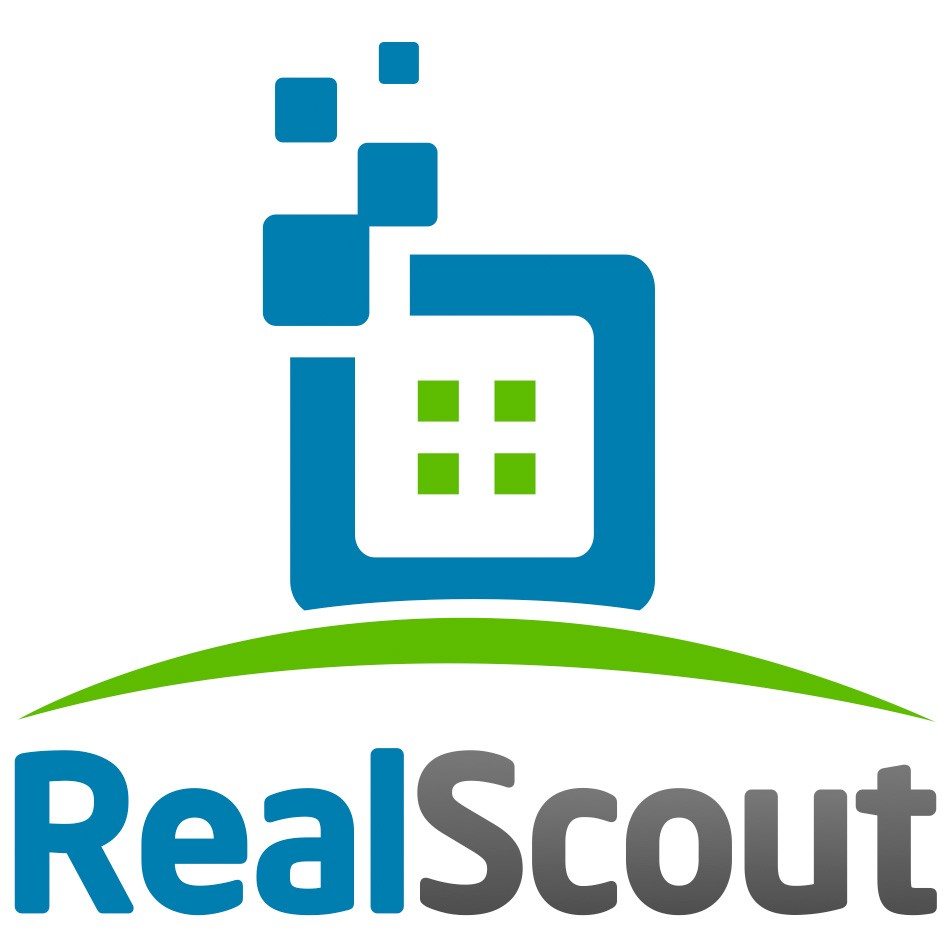
CLICK HERE TO READ THE FULL ARTICLE Moxi Works has added RealScout, a homebuyer data technology solution, to its Moxi Cloud open platform, the company recently announced.
Coldwell Banker Kappel Gateway Launches Moxi Works Open Platform
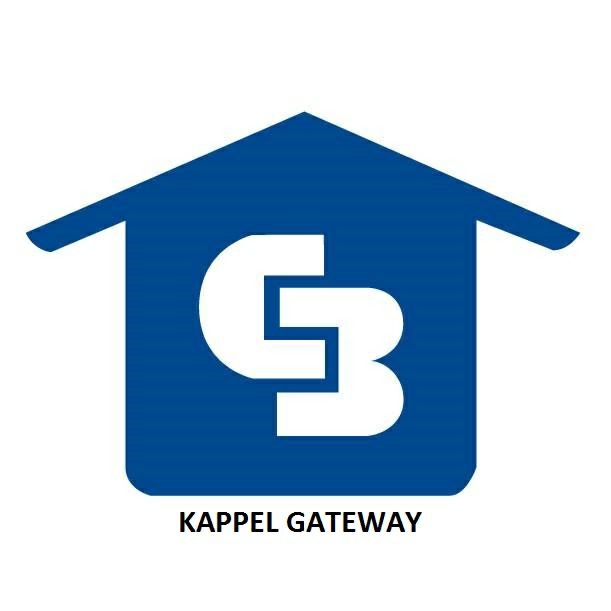
CLICK HERE TO READ THE FULL ARTICLE Coldwell Banker Kappel Gateway has launched the Moxi Works open platform, providing its agents access to the Moxi Engage™ CRM and Moxi Present™, among other products, Moxi Works recently announced. The open platform is also integrated with SkySlope, a digital transaction management service.
MoxiWorks Moved!
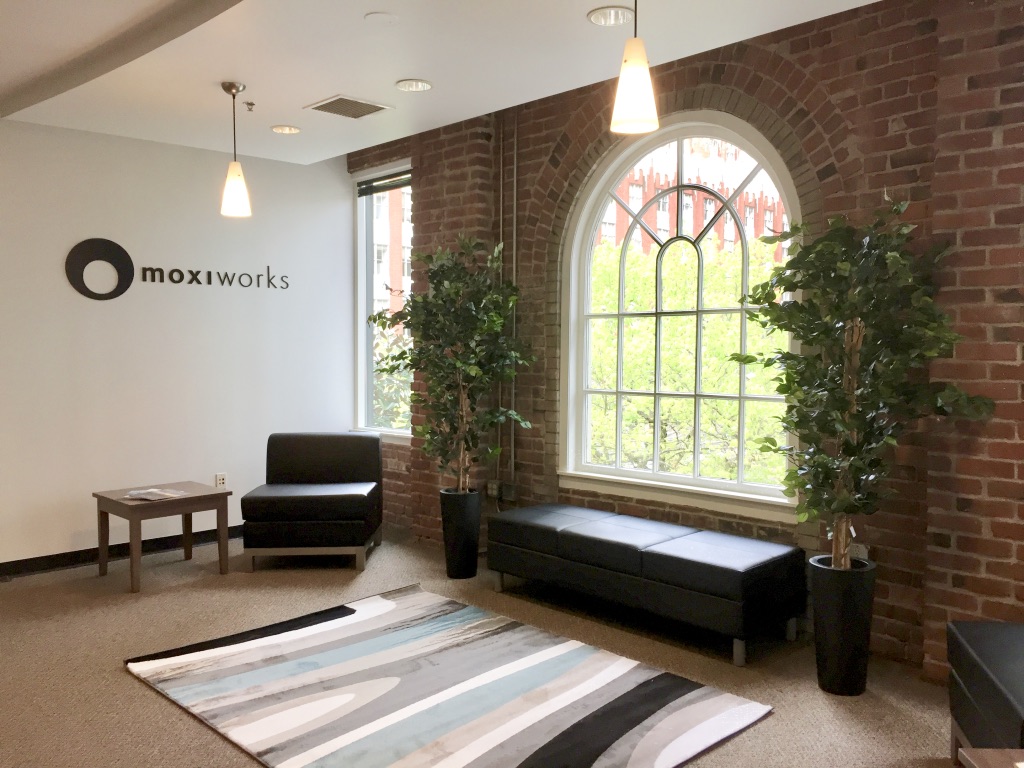
Since 2012, Moxi Works has grown exponentially. From doubling in employees, to becoming a major player in the industry (and creating the first open platform), the past five years have been good to us. We grew so much that we even had to change offices! It’s a good problem to have.
Our move didn’t take us far. In fact, it took us right downstairs to the floor below us. This time we have the entire floor, giving us more room to spread our tech wings. It’s been a few weeks since we’ve settled into our new quarters and we couldn’t be more thrilled! Say hello to Moxi Works 2.0, we’ve officially landed.
In the spirit of moving, our awesome coworkers took before and after footage of the move. You might be wondering why there are cars driving right next to our floor….well, that’s Seattle for you!
Most of the time, people dread moving days. However, at Moxi, it’s a different story. It’s hard to not be excited when you have an entire wall that’s meant to inspire you day in and day out.




We also happen to have an extra special admin, an iPad. This little guy checks people in, helps direct them where to go, and of course handles all of the Jimmy John’s orders. The future is finally here.

And how could we forget our fabulous lobby?!

Although we’ll miss where it all started, it’s onwards and upwards (or downstairs in our case) and we’re looking forward to the next five years of Moxi Works!
P.S. Thanks to all those who made the move as easy as possible! Especially our VP of Operations, Ring Nishioka!!!


 Facebook
Facebook
 X
X
 Pinterest
Pinterest
 Copy Link
Copy Link

